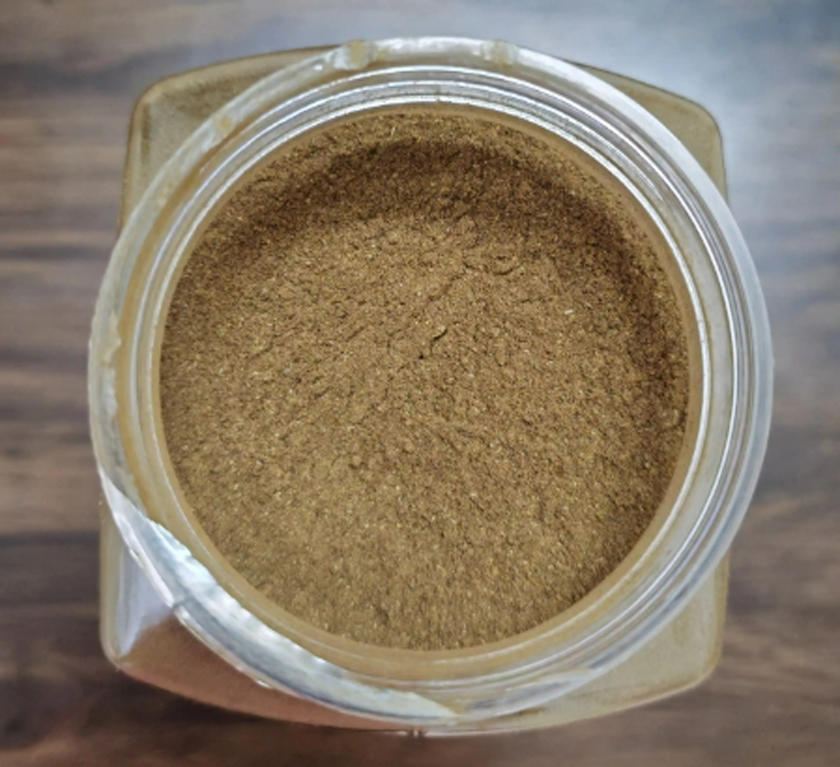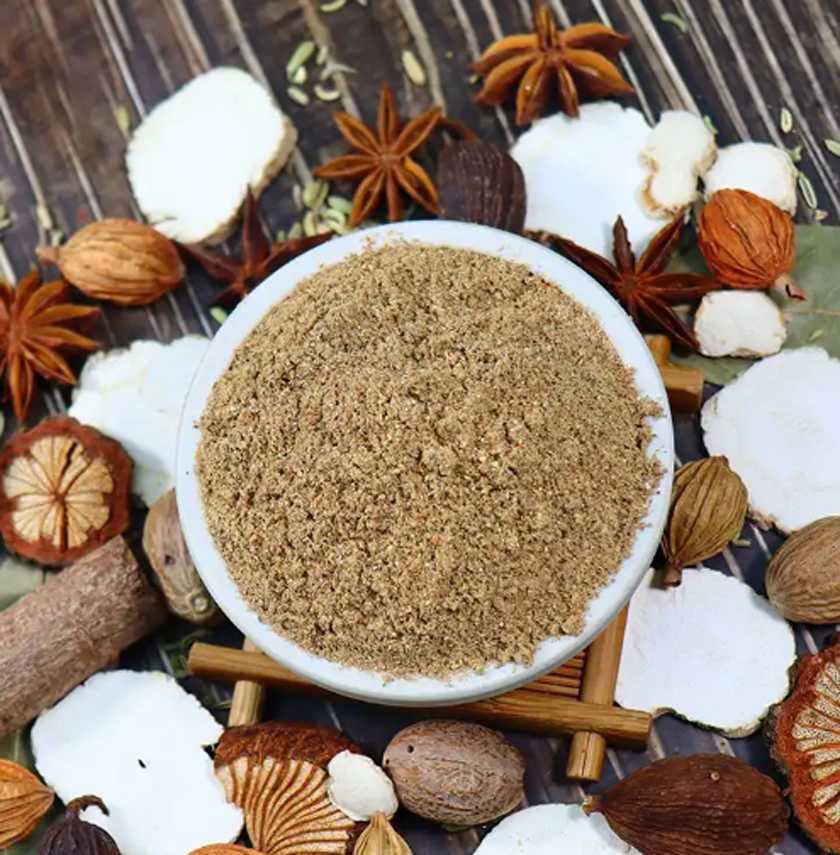What Are the Five Spices in Chinese Five Spice Powder? Uncovering the Essential Ingredients

Five Spice Powder is the "magic powder" in Chinese cooking. Just by looking at its name, one can't help but wonder which five spices it actually refers to.
What are the five spices in Five Spice Powder?
The "five spices" in Five Spice Powder are not fixed. Instead, it forms a complex flavor based on five core spices with various additional ingredients.
Star Anise: It accounts for 30% - 40% of the powder. The anethole component gives it a sweet aroma. As the "backbone" of Five Spice Powder, it is commonly found in dishes like braised pork and marinated flavors.
Sichuan Pepper: It provides a numbing sensation. Sichuan pepper contains a higher amount of limonene volatile oil, which has a remarkable effect in removing fishy odors, making it suitable for beef and mutton dishes.
Cinnamon: It releases a warm woody note. The cinnamaldehyde component can promote digestion. In the Guangdong version, licorice is often added to balance its bitterness.
Fennel Seeds: They release a herbal fragrance and relieve the fishy smell of meat. In the coastal areas of Fujian, a small amount of dried shrimp powder is sometimes mixed in to enhance freshness.
Cloves: They add a strong, pungent aftertaste. Just a small amount can enhance the aroma. Eugenol in cloves has antibacterial properties, which can extend the shelf life of food.

What kind of seasoning is Five Spice Powder?
Five Spice Powder is a "compound spice" in Chinese cooking. Its core value lies in the harmony of five flavors - balancing the original flavors of ingredients through multi-level aromas of pungency, sweetness, numbness, bitterness, and fragrance. Its history can be traced back to the Southern and Northern Dynasties. In the early days, it was used for meat preservation and later evolved into an essential condiment in every household kitchen.
Core Characteristics:
Removing Fishy Odors and Enhancing Aroma: The volatile oils in the spices (such as limonene in Sichuan pepper and anethole in star anise) can decompose trimethylamine in animal fats, reducing fishy and gamy odors.
Promoting Digestion: Cinnamon contains cinnamon polyphenols, which can assist in regulating blood sugar; fennel promotes intestinal peristalsis and is suitable for pairing with greasy foods.
Taboos:
Clove contains eugenol, so patients with high blood pressure need to control the dosage.
The Spice Proportions in Five Spice Powder
There is no fixed ratio for the recipe of Five Spice Powder, but the core spices should follow the principle of "making the primary and secondary clearly distinguishable".
The following are two common ratios:
Basic Version (suitable for marinated flavors and stewed meats):
Star anise 40%, Sichuan pepper 25%, cinnamon 15%, fennel seeds 15%, cloves 5%.
Enhanced Version (suitable for strong-flavored dishes, such as grilled lamb chops):
Star anise 35%, Sichuan pepper 30%, cinnamon 10%, fennel seeds 10%, cloves 5%, dried ginger 10%.

Can 13 Spice Powder Replace Five Spice Powder?
Yes, but with some skills!
13 Spice Powder has additional spices like amomum fruit, nutmeg, tsaoko fruit, etc. compared to Five Spice Powder, resulting in a more complex and rich flavor. When using it as a substitute, note the following:
Reduce the amount: Since 13 Spice Powder has a stronger flavor, it is recommended to use about 2/3 of the amount of Five Spice Powder.
Adjust the combination: If used in light dishes (such as steamed fish), a little sugar can be added to moderate the herbal flavor.
Avoid conflicts: 13 Spice Powder contains tangerine peel, angelica root, etc., which are not suitable for dishes with seafood or sweet and sour flavors.
What Dishes are Commonly Made with Five Spice Powder?
The "versatility" of Five Spice Powder is reflected in its wide range of application scenarios:
Classic Marinated Flavors: Mixed with soy sauce, sugar, and cooking wine to make a marinade for marinating dried tofu, eggs, and pig's trotters, creating an attractive "amber" luster.
Enhancing Meat Aroma: Applied when marinating spareribs and chicken wings to remove fishy odors and enhance freshness. Added when stewing beef and mutton to soften the fibers and add complex aromas.
Baking Creativity: Sprinkled on the surface of roasted chicken skin or mixed with panko for deep-fried tempura, giving Western-style cuisine an oriental charm.
Adding Flavor to Vegetarian Dishes: Sprinkled when stir-frying mushrooms and tofu to imitate the aroma of meat. Used when marinating eggplants and potatoes to reduce the dullness of the ingredients.
Taboo Tips:
Use Five Spice Powder sparingly for seafood, as it may easily mask the freshness.
For cold dishes, freshly ground spices are recommended to avoid the oxidized smell of pre-made powder.
Can Five Spice Powder be Used as a Marinade?
Five Spice Powder is a "golden partner" for marinades, especially suitable for meats that require long marinating times, such as:
Barbecue Marinade: 2 spoons of Five Spice Powder + 3 spoons of light soy sauce + 1 spoon of cooking wine + 1 spoon of minced garlic. Marinate chicken wings and spareribs for 2 hours to remove fishy odors and enhance flavor.
Preserved Meat Recipe: 1 spoon of Five Spice Powder + 10g of salt + 5g of sugar + 1 spoon of white wine. Apply on streaky pork and air-dry to make Cantonese-style sausage.
Vegetarian Marinating: 1 spoon of Five Spice Powder + 2 spoons of olive oil + a little salt. Marinate tofu and king oyster mushrooms. They will have a strong aroma after frying.
Three Types of Dishes to be Avoided with Five Spice Powder
Although Five Spice Powder is versatile, caution should be exercised when using it in the following three types of dishes:
Dumpling Fillings: The complex aroma of Five Spice Powder may mask the original flavor of the filling, resulting in a strong fishy smell in the dumplings. It is recommended to use scallion and ginger water + oyster sauce to enhance freshness instead.
Steamed Seafood: Five Spice Powder may damage the freshness and sweetness of seafood. It is recommended to use shredded scallions + steamed fish soy sauce instead.
Blanched Vegetables: The strong aroma of Five Spice Powder conflicts with the light original flavor of vegetables. It is recommended to use minced garlic + olive oil instead.
Alternative Solutions:
For dumpling fillings, scallion and ginger minced + salt + oyster sauce + chicken essence can be used. For three-delicacy dumplings, eggs can be added to enhance freshness.
For steamed seafood, lemon slices + mint leaves can be used to remove fishy odors and enhance aroma.
For blanched vegetables, minced garlic + light soy sauce + sesame oil can be used, and a small amount of white sesame seeds can be sprinkled for decoration.























